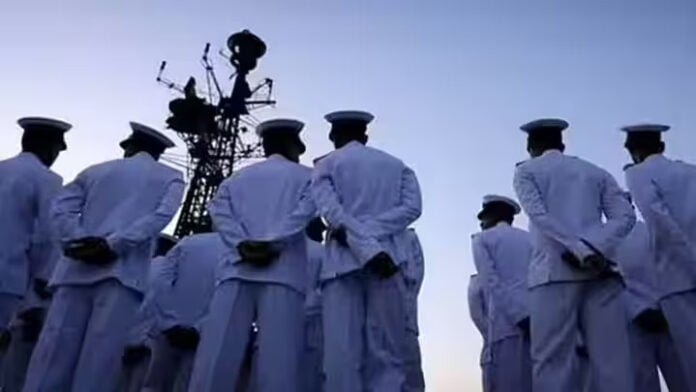In a startling turn of events that has reverberated globally, a court in Qatar delivered a verdict that few anticipated: sentencing eight former officials of the Indian Navy to the gallows. This judgment, which has been the focal point of international news, has not only sent shockwaves across diplomatic circles but has also raised pressing questions about the intricacies of international law and relations.
The Indian government, taken aback by this unexpected decision, has expressed its profound dismay and concern. Having been closely monitoring the situation from the onset, the Indian authorities are now mobilizing their resources, seeking expert counsel, and exploring every conceivable legal avenue to address and potentially overturn this grave matter. The case underscores the delicate nature of diplomatic ties and the challenges nations face in navigating complex international legal terrain.
The Verdict and India’s Response
The Court of First Instance in Qatar delivered the judgment involving eight Indian employees of the Al Dahra company. The Ministry of External Affairs (MEA) of India expressed its deep shock over the verdict, emphasizing the gravity with which India views this case. The MEA’s press release stated, “We are deeply shocked by the verdict of the death penalty and are awaiting the detailed judgment. We are in touch with the family members and the legal team, and we are exploring all legal options.” The Indian government has also conveyed its intent to engage with Qatari authorities regarding the verdict.
Background of the Detainees
The individuals in question, all former personnel of the Indian Navy, had been under Qatari custody since August 2022. They were associated with Dahra Global Technologies and Consultancy Services, a private entity offering training to Qatar’s armed forces.
Among the detained are decorated officers who have previously commanded significant Indian warships. The list of those sentenced includes Captain Navtej Singh Gill, Captain Birendra Kumar Verma, Captain Saurabh Vasisht, Commander Amit Nagpal, Commander Purnendu Tiwari, Commander Sugunakar Pakala, Commander Sanjeev Gupta, and Sailor Ragesh.
While the exact charges against these men have not been made public by the Qatari authorities, sources familiar with the matter have indicated allegations of espionage. Reports suggest that the group had been accused of spying on a submarine program on behalf of a third country.
A Diplomatic Challenge
The verdict poses a significant diplomatic challenge for India. The Indian Ambassador to Qatar met with the detained individuals on October 1, emphasizing the Indian government’s commitment to ensuring their well-being and pursuing their repatriation. The MEA has reiterated its dedication to providing all necessary consular and legal assistance to the affected individuals and their families.
The case has garnered significant attention, both nationally and internationally, highlighting the complexities of geopolitical relationships and the delicate balance of diplomacy, justice, and human rights.
As the situation unfolds, it remains to be seen how the diplomatic dialogue between India and Qatar will evolve and what steps will be taken to address the concerns surrounding the verdict.


